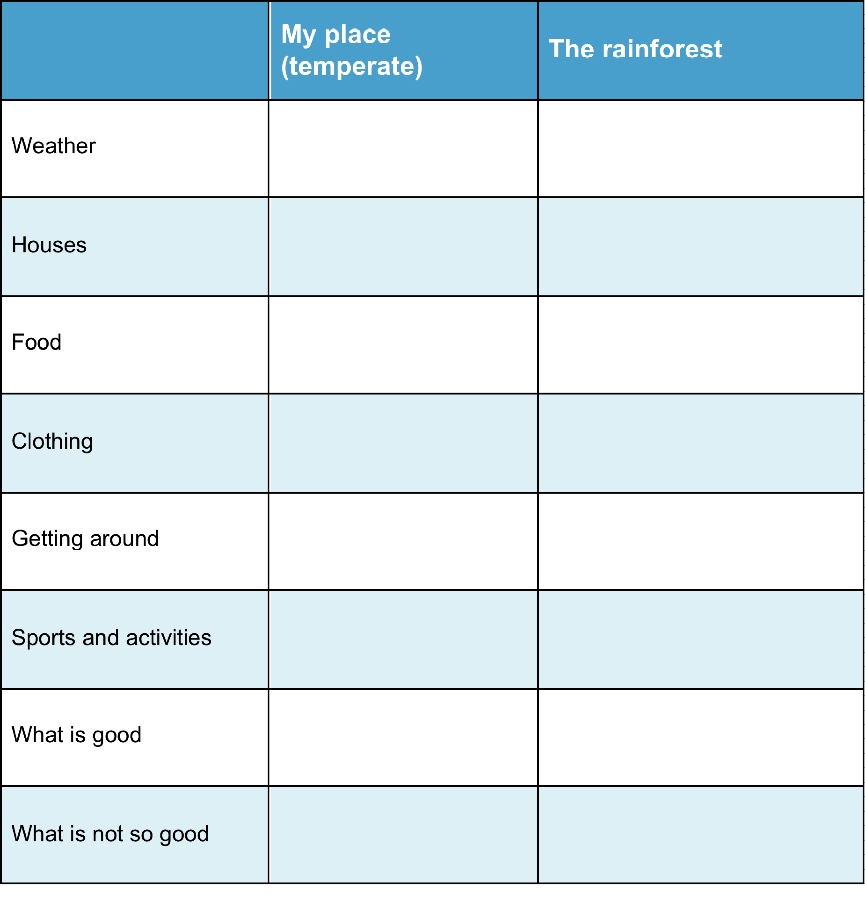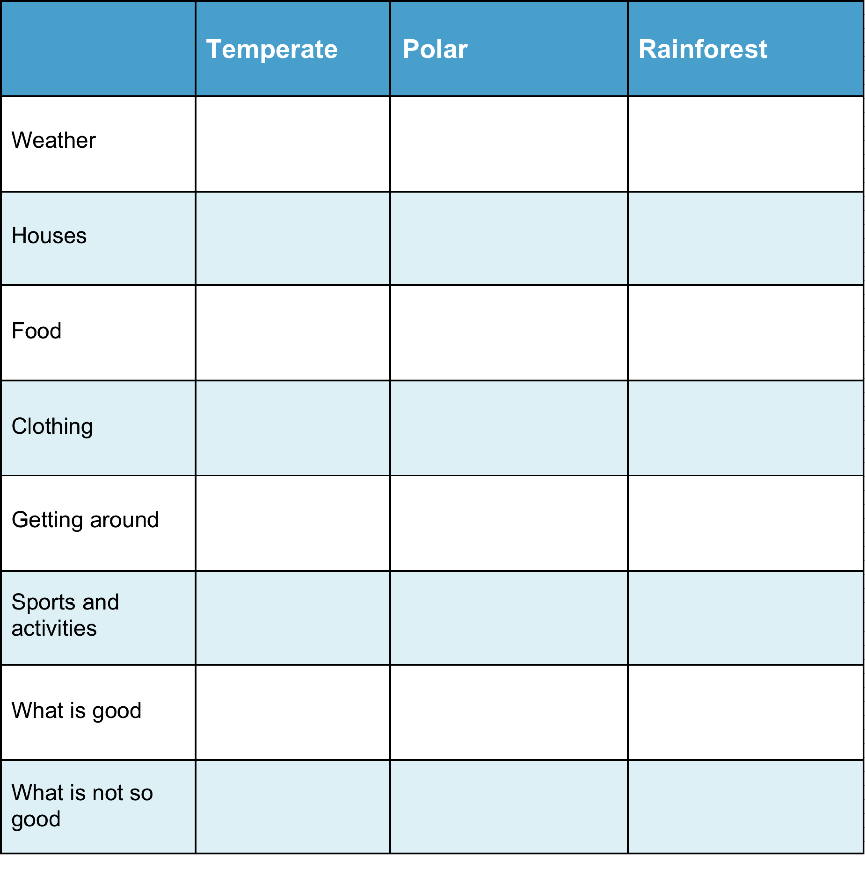Information for Teachers
Curriculum links
Australian Science Standards
GS (ACHASSK068) The main climate types of the world and the similarities and differences between the climates of different places
DT (ACTDEK012) Food and fibre production and technologies in modern and traditional societies
DT (ACTDEK013) Suitability of materials, systems, components, tools and equipment for particular purposes
New Zealand Science Achievement Objectives
PEB: The nature of the water cycle and its effect on climate, landforms, and life
NTTK: The relationship between the materials used and their performance properties in technological products
Helpful websites
You may want to direct your students to websites to help with their investigations.
Students can do searches such as:
living+at+high altitude
people+in+deserts
villages+on+the+sea
When students have good general information, they can then search for houses, schools, work, food, clothing, and dangers in the place they are investigating.
How to search the internet
1 Keep your request short
Fewer words will give a more accurate search.
2 Choose exactly what you want
For example: Arctic Circle Climate
3 Use quotes
Double quotes around a set of words tell the search engine to consider those exact words in that exact order without any change. For example: “Arctic Circle Climate”
4 Use the plus sign (+)
If you add a plus sign (+) between words, the internet will search for all the words. For example: migrate+birds+whales+mammal
5 Use the minus sign (–) to say what you don’t want
Use a minus sign (–) to show words you do not want to appear in your results. For example: if you search for burrowing animals and do not want mammals in your search, –mammals will exclude mammals. Note that you need to put a space before the minus sign for the word to be excluded.
6 Be very clear about what you don’t want
Part 1
Ask questions and make predictions
After reading The Land Where I Live, you may have many questions about the influence climate has on how people live.
List your questions
- Compare your list with questions that others have.
- Choose a question you would like to investigate.
- You can work alone, with a partner, or in a small group.
You may want to choose one or more of these questions to investigate
Q1. How is the place where I live similar to one of the places in The Land Where I Live? How is it different?
Q2. What is similar and what is different about living in the temperate, polar and tropical places in The Land Where I Live?
Q3. Choose a place that has a very different climate or environment (e.g. living at high altitude, living in a desert, living on the sea) and investigate the questions.
Go to Part 2 Plan and investigate →Part 2
Plan and investigate
Do searches in the internet or in books or talk to people who live in your climate that can help to find the information you are looking for.
Your teacher may suggest suitable websites for further information.
Go to Part 3 Record and analyse data →Part 3
Record and analyse data
Find a way of recording your information that will allow you to see any patterns in the data.
Data Chart for The Land Where I Live
 Download Chart
Download Chart
Go to Part 4 Evaluate the information →
Part 4
Evaluate the information
1. Look over the information you have gathered and the patterns you have found.
Write some statements about your investigation. Try to write one sentence that covers the information in one part of your work.
For example: The things that people do in different climates are shaped by the weather.
2. Search for other patterns.
3. Makes notes about what you find.
Go to Part 5 Communicate and share ideas →Part 5
Communicate and share ideas
Return to all of the information that you have gathered in your investigation.
What are the most important ideas about your topic?
Make a chart showing the most important ideas.
 Download Chart
Download Chart
← Return to menu
